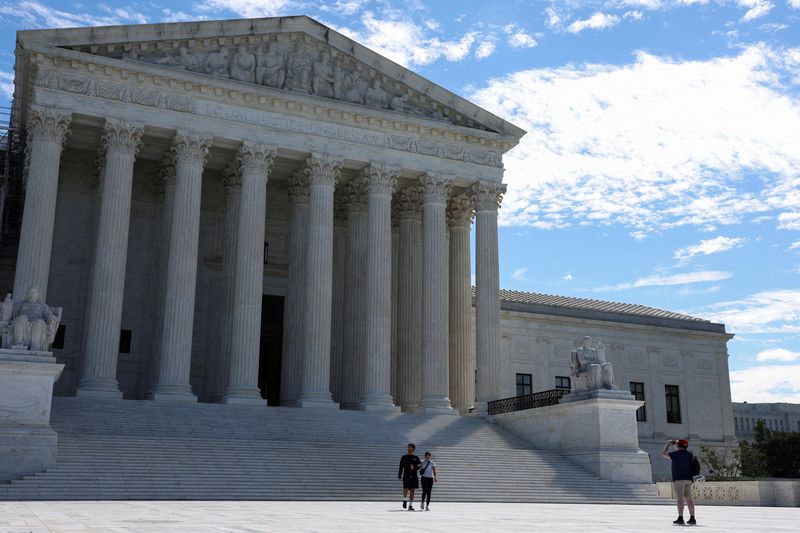By Daniel Wiessner
(Reuters) -The U.S. Supreme Court on Wednesday made it easier to bring certain workplace discrimination lawsuits in a ruling that gave a boost to a St. Louis police officer who claimed she was transferred to an undesirable new role because of her sex.
In a case testing the scope of federal workplace protections, the justices ruled 9-0 to throw out a lower court's decision to dismiss the lawsuit brought by the officer, Jatonya Muldrow, and directed it to reconsider the matter.
Muldrow has claimed she was transferred out of a police intelligence unit by a new supervisor who wanted a male officer in the position. The city of St. Louis has said officers are routinely transferred and that Muldrow's supervisor transferred more than 20 officers when he took over the intelligence unit.
Title VII of the Civil Rights Act of 1964, which bars workplace bias, bars discrimination based on sex, race, religion and other characteristics "with regard to any term, condition, or privilege of employment."
At issue in the case was whether Title VII requires employees to prove that discrimination caused them significant harm such as a pay cut, demotion or job loss.
"Today, we disapprove that approach," liberal Justice Elena Kagan wrote for the court. "Although an employee must show some harm from a forced transfer to prevail in a Title VII suit, she need not show that the injury satisfies a significance test. Title VII's text nowhere establishes that high bar."
Kagan's opinion was joined by five other justices. Conservative Justices Clarence Thomas, Samuel Alito and Brett Kavanaugh filed separate opinions agreeing with the outcome.
Many bias lawsuits, like Muldrow's, involve claims that workers were transferred, had their schedules changed or otherwise faced discrimination short of being fired or losing pay. There has been a split among U.S. appeals courts on the issue of whether they may sue.
Muldrow was backed by President Joe Biden's administration, which had urged the Supreme Court to endorse a broad application of Title VII. The Justice Department in a brief to the court said that discriminatory transfers always violate the law because they necessarily involve a change in working conditions.
Lower courts were divided over whether any workplace bias violates Title VII, or if companies violate the law only when discrimination influences major employment decisions.
In Muldrow's case, the St. Louis-based 8th U.S. Circuit Court of Appeals in 2022 decided that her transfer had not negatively affected her working conditions, agreeing with a Missouri federal judge's earlier ruling.
The Supreme Court heard arguments in the case in December.
